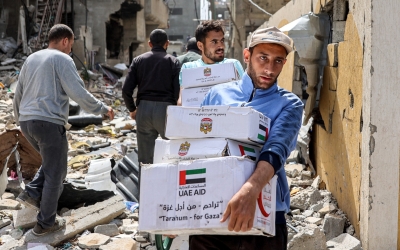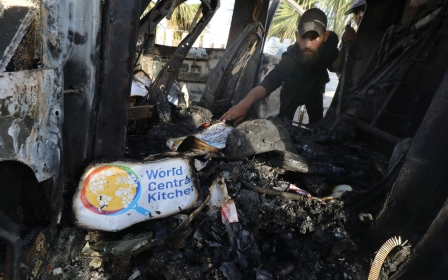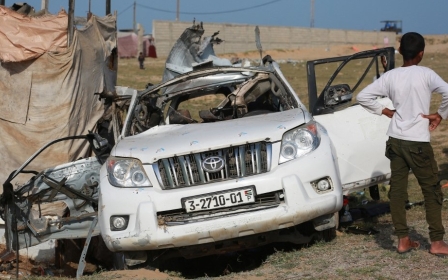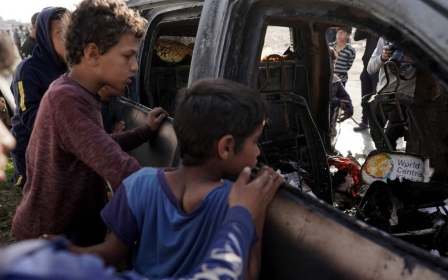'Serious failures' by Israeli forces caused aid worker killings: Australian inquiry
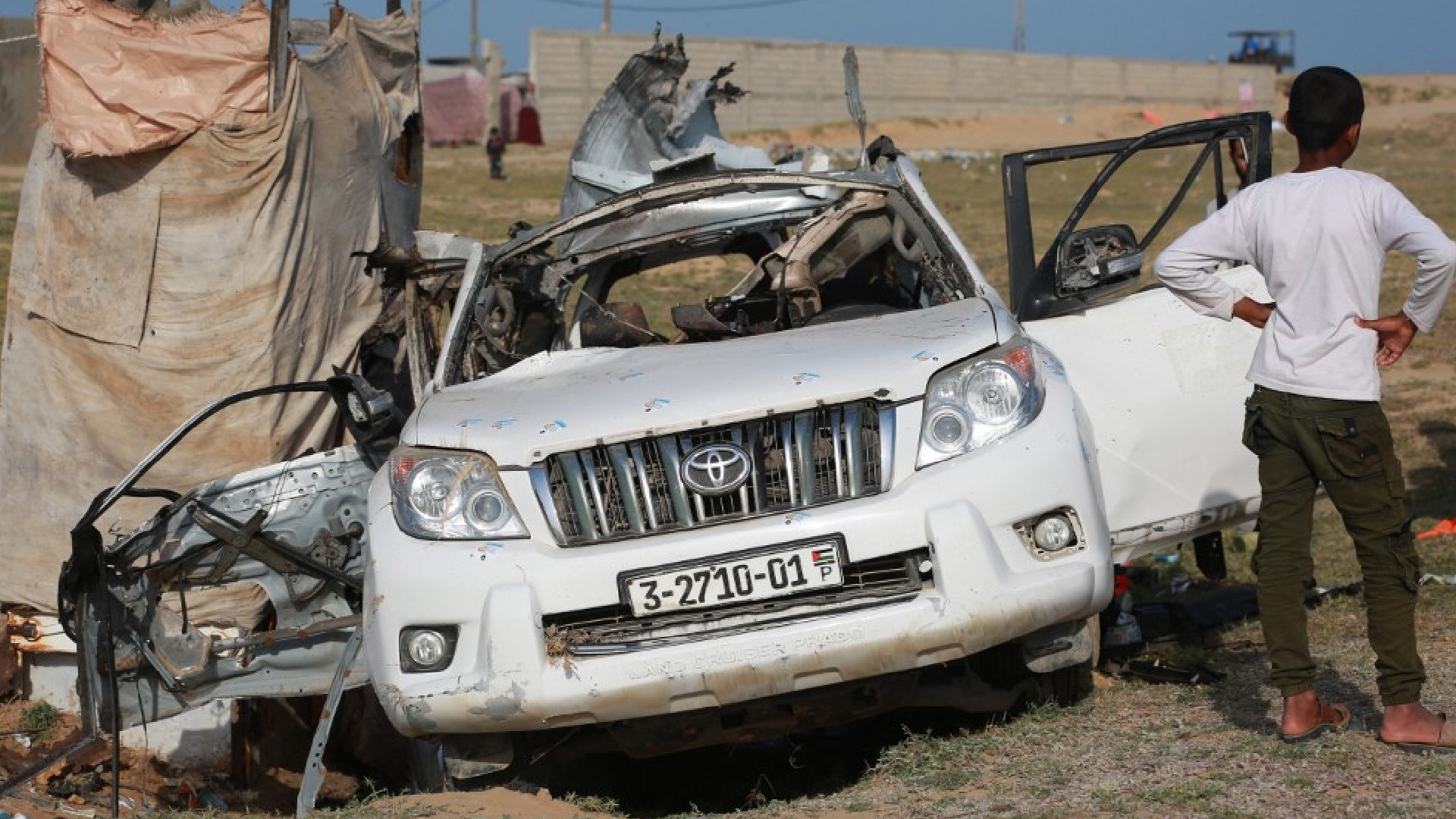
The Israeli military's attack on an aid convoy in April that killed seven workers in Gaza resulted from “serious military failures”, an Australian inquiry revealed on Friday.
On 1 April, Israeli strikes on three World Central Kitchen vehicles that had delivered 100 tonnes of food aid to a Deir al-Balah warehouse killed aid workers from Australia, Canada, Poland, the UK, the US and Palestine.
The government review examining Israel’s response to the fatal strikes attributed the attack to a failure by Israeli forces to follow procedures, citing “mistaken identification and decision-making errors, likely compounded by a level of confirmation bias”.
Former Australian Defence Force chief Mark Binskin, appointed special adviser on the matter, said he did not believe Israeli forces "knowingly or deliberately directed against the WCK”.
He concluded that this was the primary factor behind a “significant breakdown in situational awareness" and urged the Israeli government to issue an “appropriate apology” to the victims’ families.
New MEE newsletter: Jerusalem Dispatch
Sign up to get the latest insights and analysis on Israel-Palestine, alongside Turkey Unpacked and other MEE newsletters
Binskin added that the victims' families do not consider the public apology issued by the Israeli government to be sufficient.
The family of Zomi Frankcom, the Australian aid worker killed in the attack, called for "further investigations" and described the report as "only the first step".
Foreign minister Penny Wong said that the attack was not “a one-off incident,” citing a UN report which found that over 250 aid workers have been killed in Gaza since October.
“Gaza remains the deadliest place on earth to be an aid worker,” she said, urging for stronger protections for workers in the war-torn enclave.
Binskin’s report follows an internal investigation by Israeli forces that resulted in the dismissal of two officers and the reprimanding of three others.
Following the internal inquiry, Wong said that Frankom's family felt the disciplinary action was insufficient.
The Australian inquiry was set up shortly after the foreign minister condemned Israeli Prime Minister Benjamin Netanyahu's comments on the attack as "deeply insensitive".
'Whitewashing'
The conclusions of the review roughly align with the Israeli military investigation, which also found that the attack was due to a series of errors.
Mehreen Faruqi, deputy leader of the Australian Greens party, condemned Binskin's report as “a complete whitewashing” because he had to "rely significantly" on Israel's internal investigation into the attack.
An investigation by Al Jazeera’s Sanad verification agency, based on open-source information, witness testimonies and images of the site, revealed that the convoy attack was intentional.
The WCK said that their convoy was hit "despite coordinating movements" with the Israeli army.
WCK founder Jose Andres told reporters in April that Israeli forces had targeted the convoy “systematically, car by car”.
Middle East Eye reported that at least 357 humanitarian-run sites and convoys in Gaza, whose coordinates had been shared in advance, were hit before the WCK attack.
UN officials and aid workers, many speaking on condition of anonymity, told MEE it had been clear for months that the humanitarian notification system in Gaza was broken.
Middle East Eye delivers independent and unrivalled coverage and analysis of the Middle East, North Africa and beyond. To learn more about republishing this content and the associated fees, please fill out this form. More about MEE can be found here.


